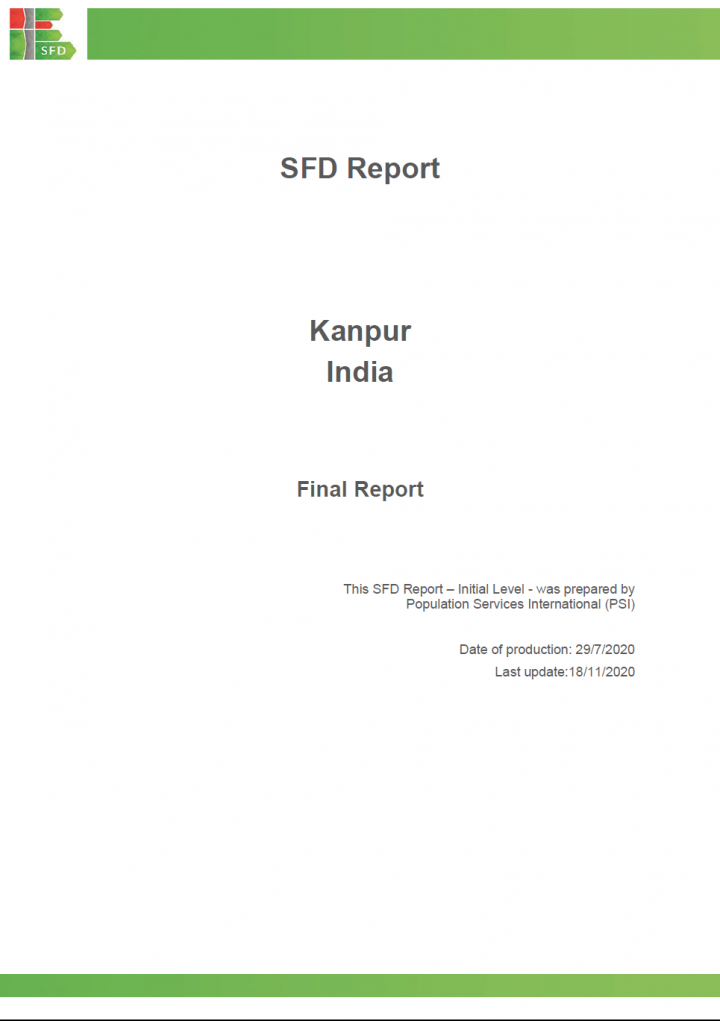SFD Report - Kanpur, India Rai, A. (2020)
Kanpur is the tenth most populous city in India and the largest city within the state of Uttar Pradesh. It is situated on the southern bank of Ganga River (KMC, n.d.). Kanpur is a part of the Atal Mission for Rejuvenation and Urban Transformation (AMRUT) and the Smart City Mission of the Government of India (GoI). The urban local body in Kanpur is Kanpur Municipal Corporation (KMC). The total area of jurisdiction is 260 km2. The KMC jurisdiction area is divided in 9 zones namely: Zone 1, Zone 2, Zone 3, Zone 4, Zone 5, Zone 6, Aerodrome, Armapur Estate, Cantonment and COD. There are 110 election wards in KMC. The population of KMC jurisdiction area as per census 2011 is 27,65,348 with 522,242 households (HHs). The estimated population of the Kanpur agglomeration is 30,11,693 and the total households at 532,665 (KMC, 2020). Decadal growth rate of the city is 8.9%. HH size is 6
people per household. Average density of the city is 11,583.43 persons/km2. For the purpose of this report, the KMC population has been considered.
The Kanpur Metropolitan Area (KMA) as delineated by KMC under the Jawaharlal Nehru Urban Renewal Mission is spread over an area of 1,640 km2. The total population of KMA is estimated at 5 million. KMA includes the Kanpur
Nagar Nigam area, 8 kilometres around KMC boundary and newly included 47 villages of Unnao district on the north-eastern side which spreads till Murtaza Nagar; in the west its limit is up to Akbarpur Nagar Panchayatraj limit; in the eastern side the limit has been expanded on the road leading to Fatehpur and is extended up to the metropolitan region area which includes the area of Shukla ganj nagar palika, Unnao Nagar Palika, Akbarpur Nagar panchayat and Bithur Nagar Panchayatraj area (Unknown, 2018).
Bibliographic information
Rai, A. (2020). SFD Report - Kanpur, India Population Services International (PSI)
Filter / Tags
Politicians and local decision makersPractitionersEnglishSFD Report

